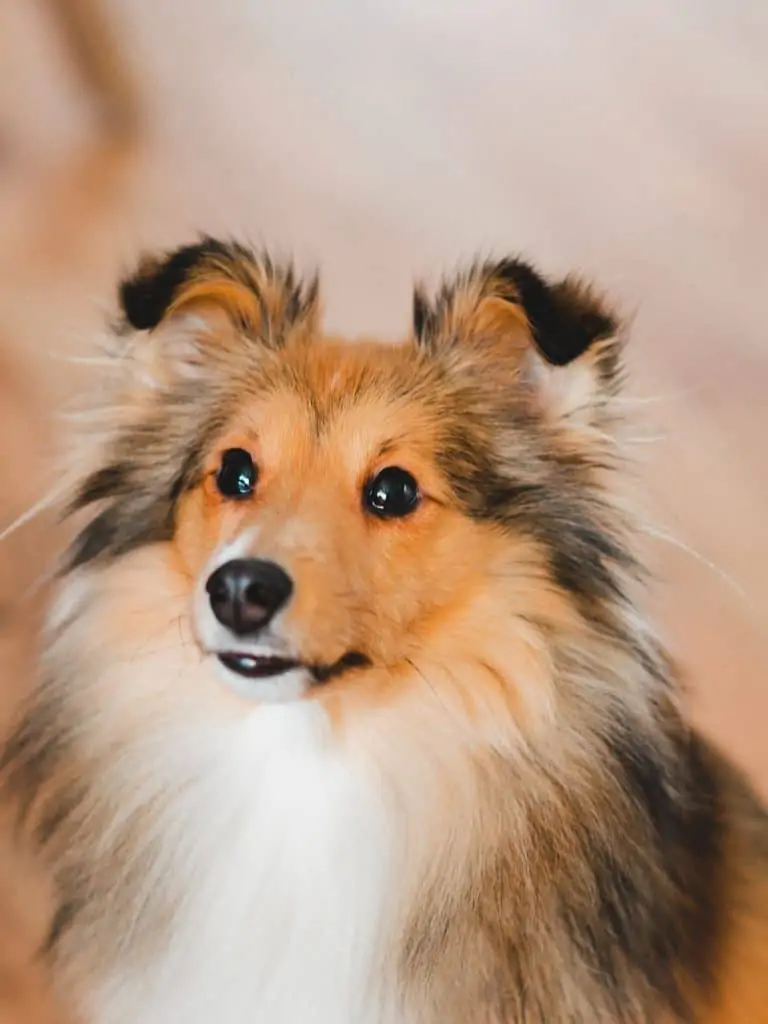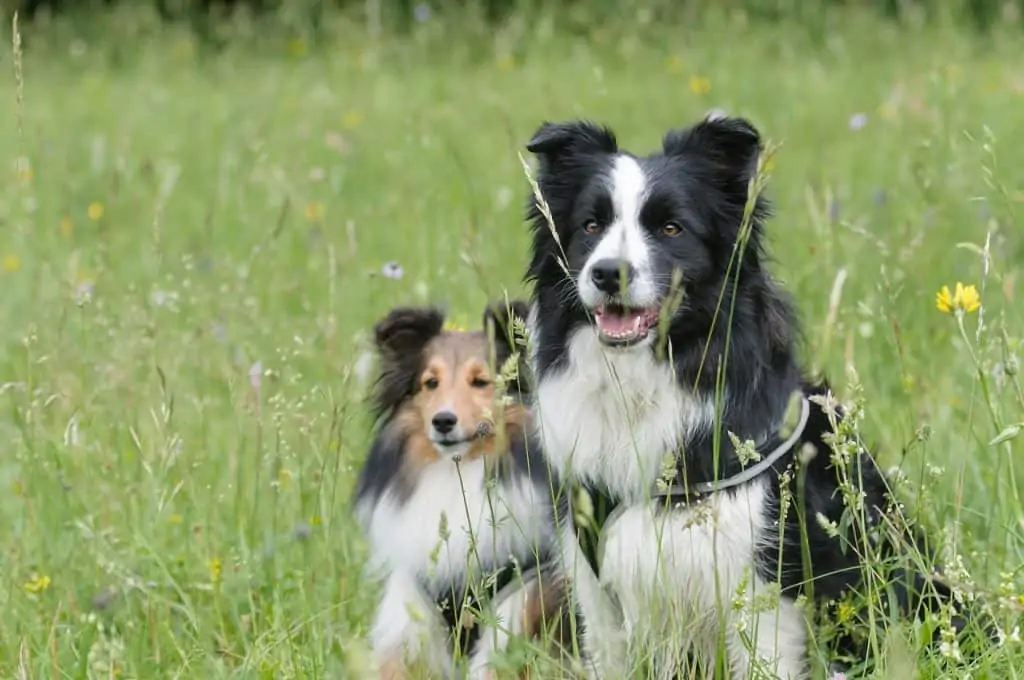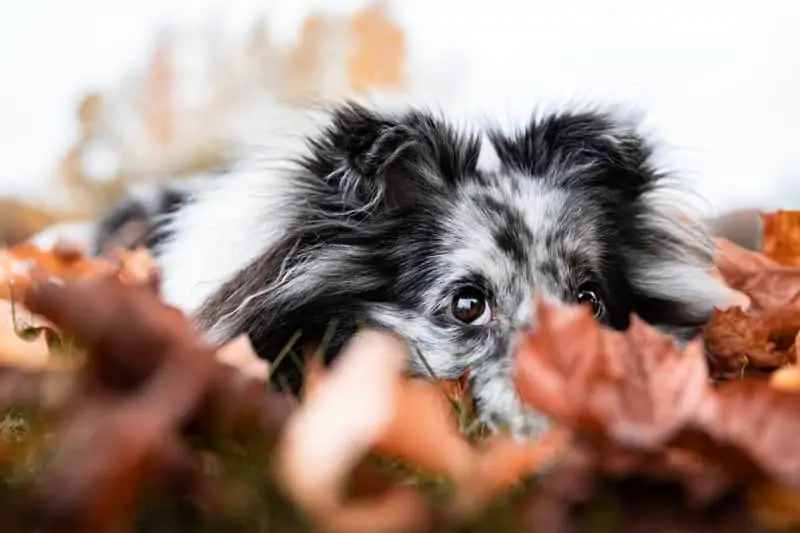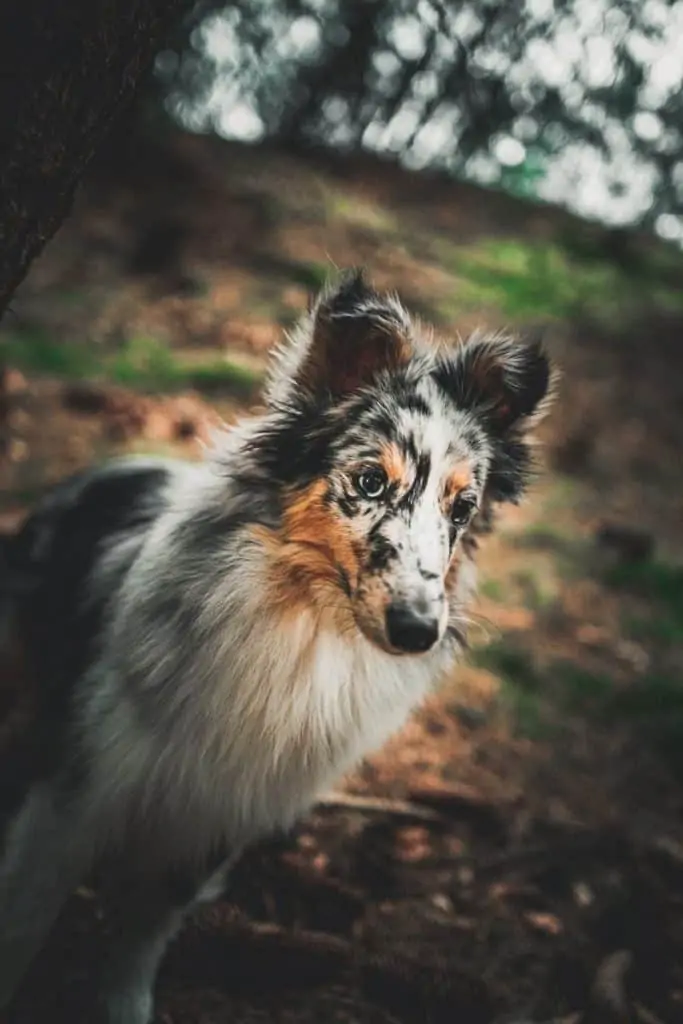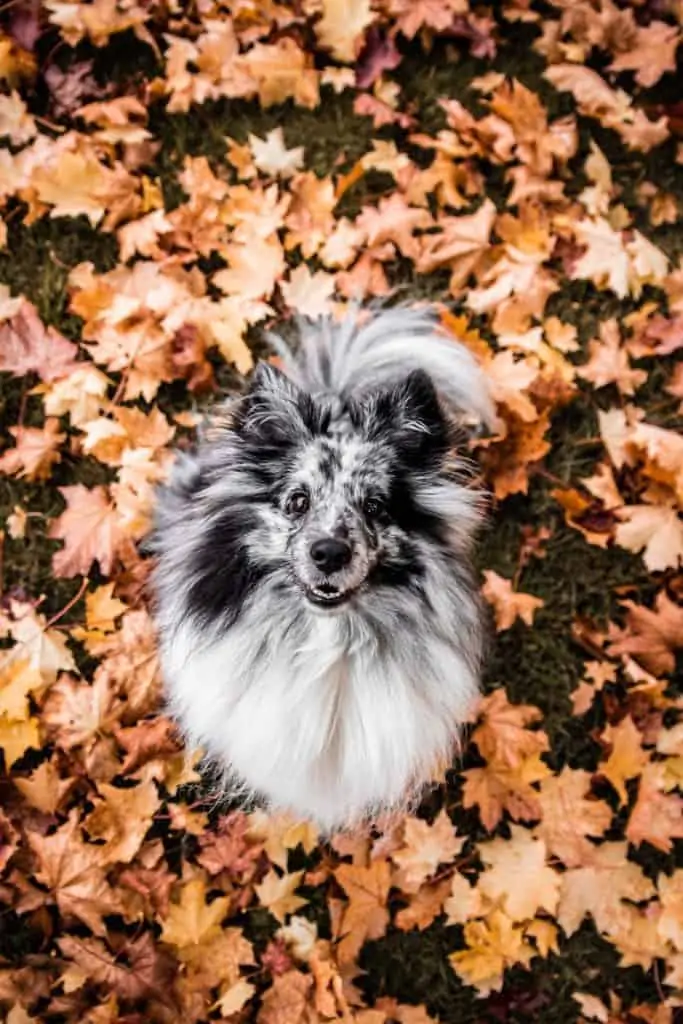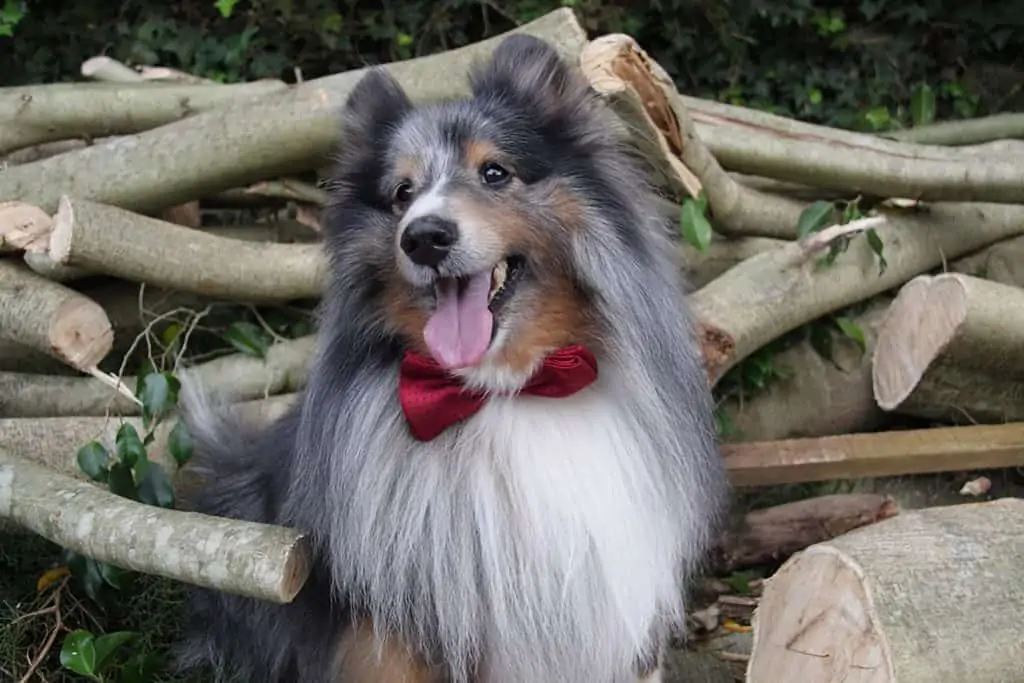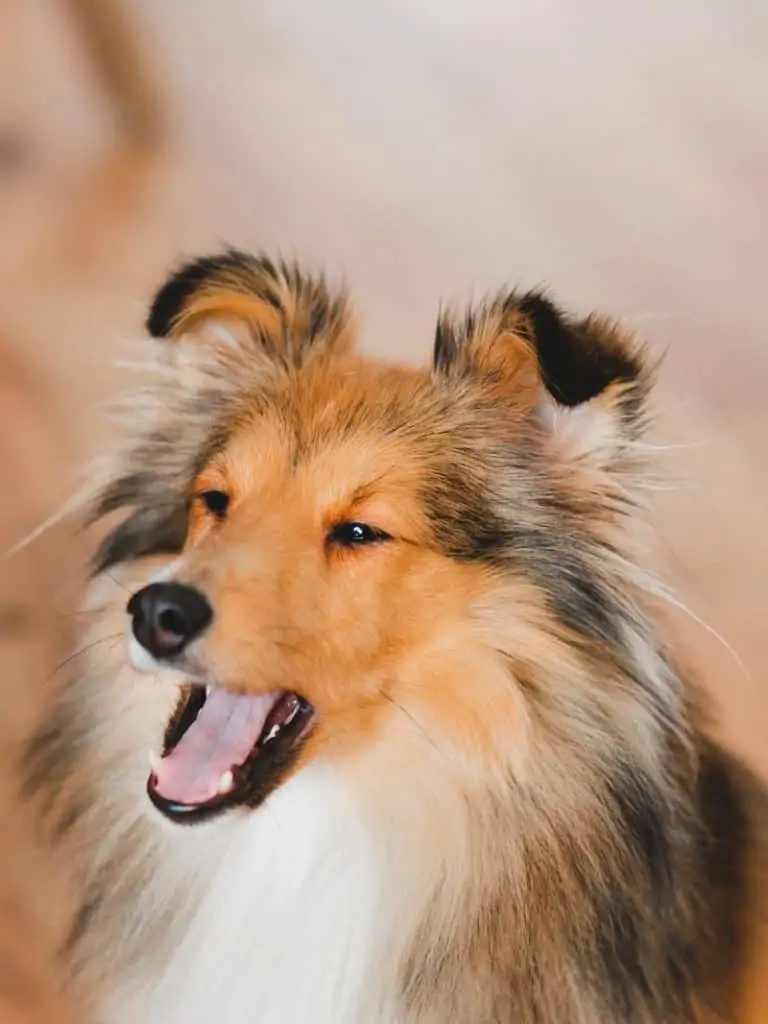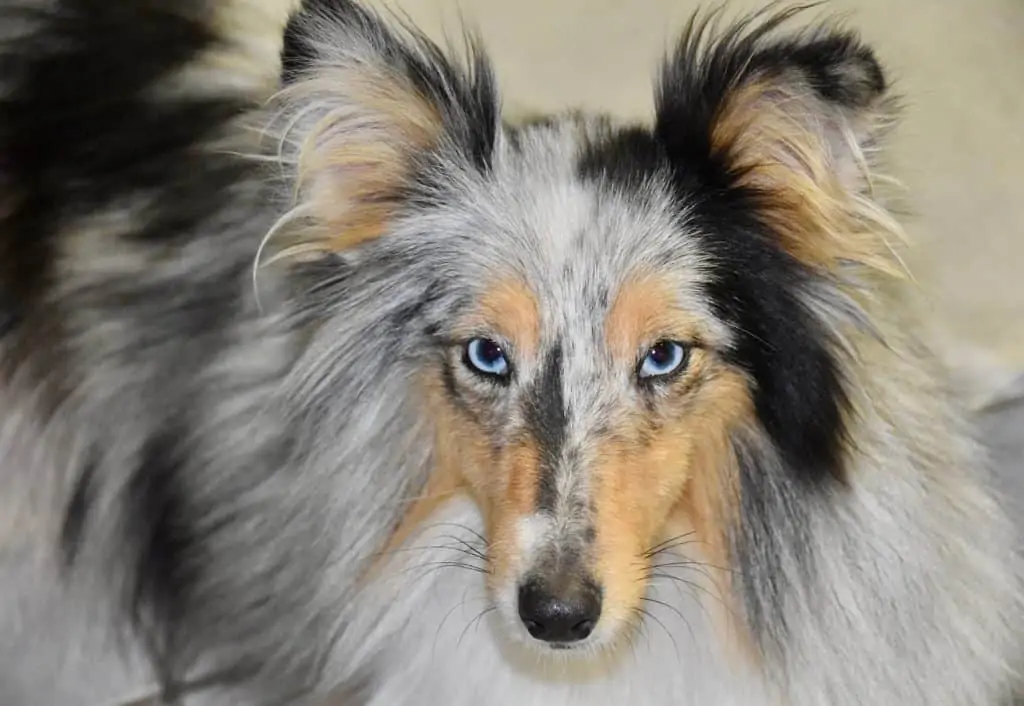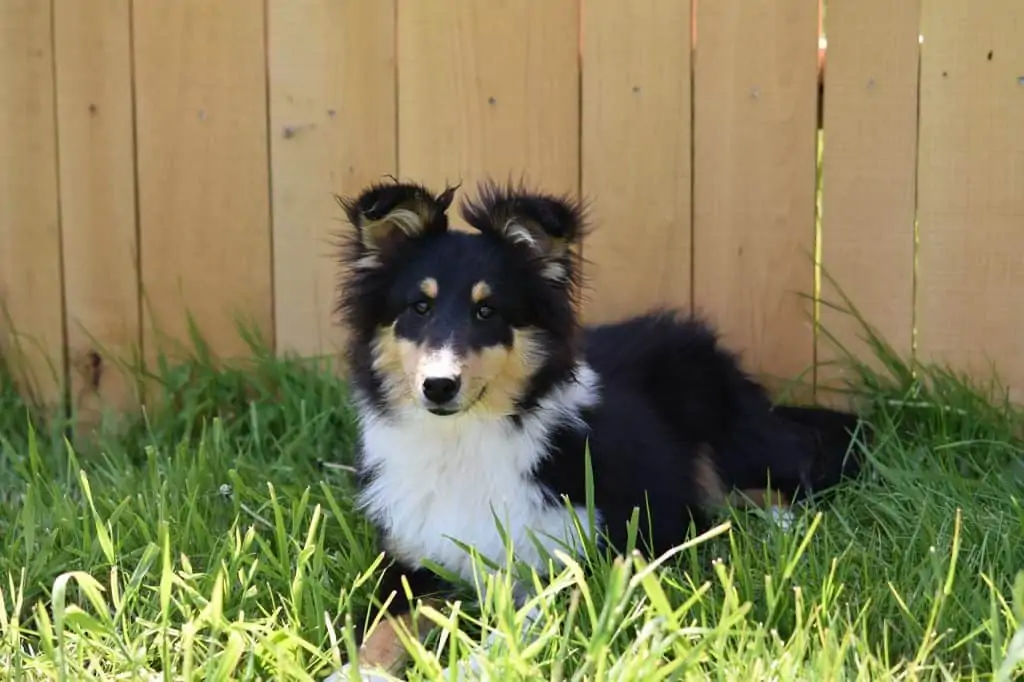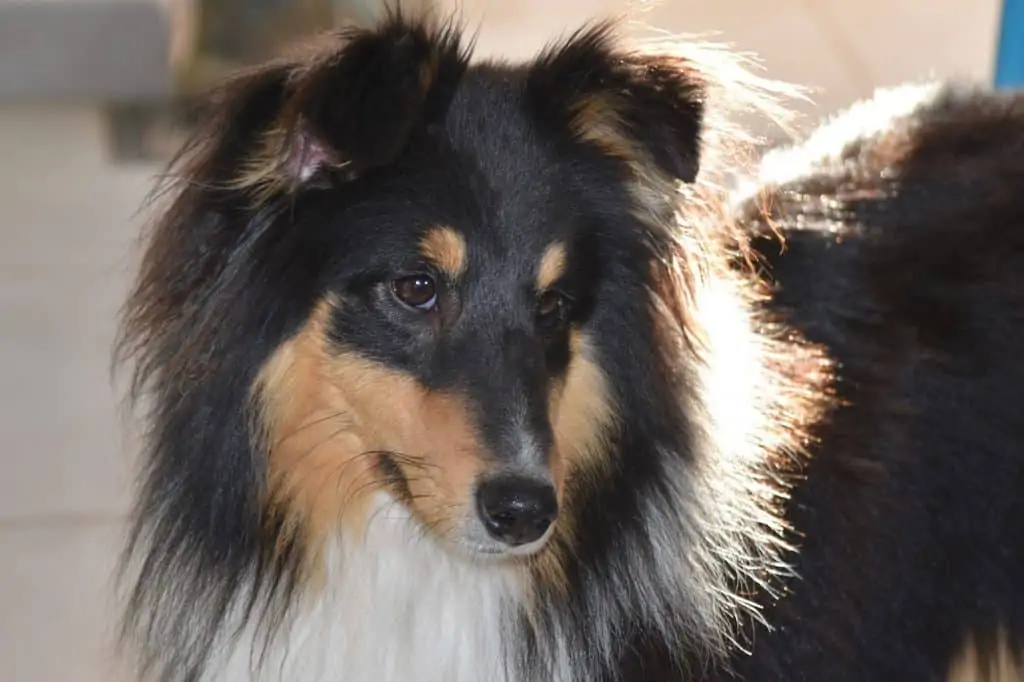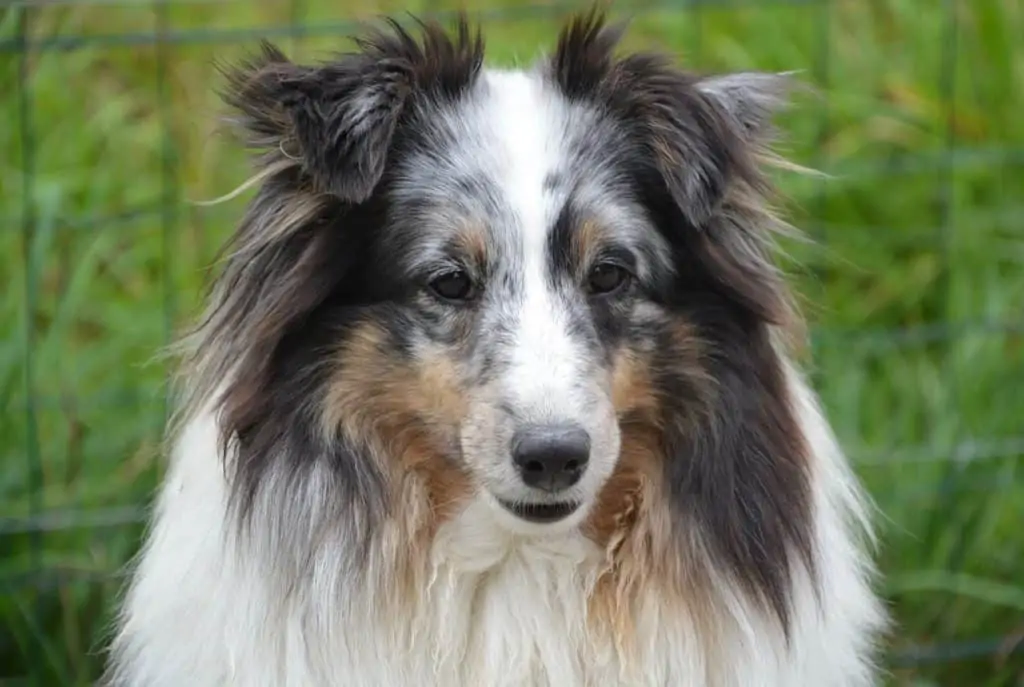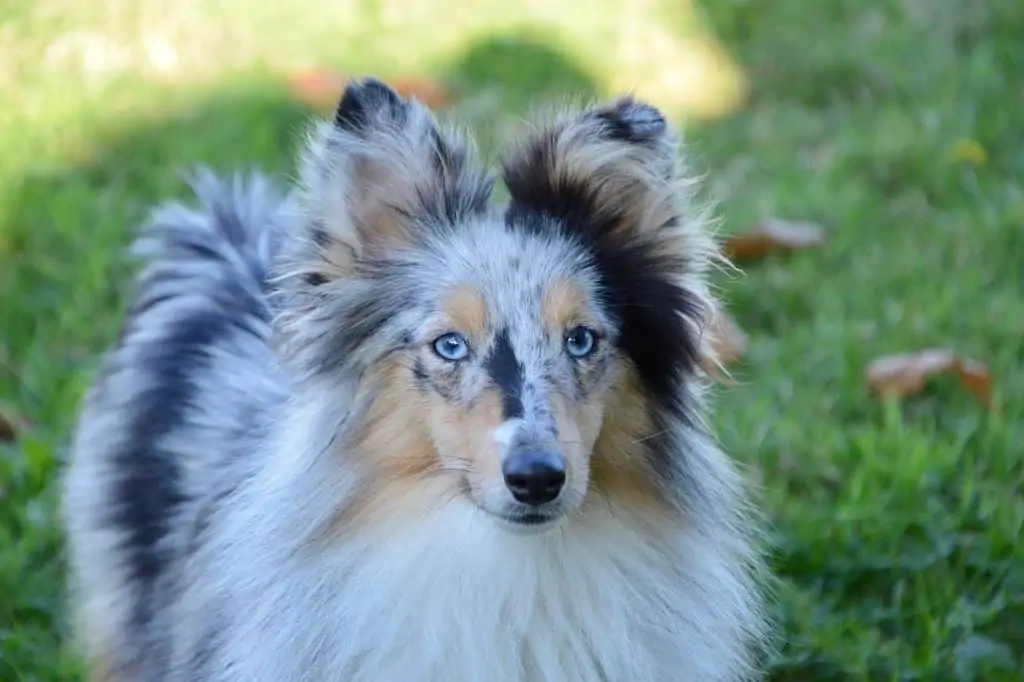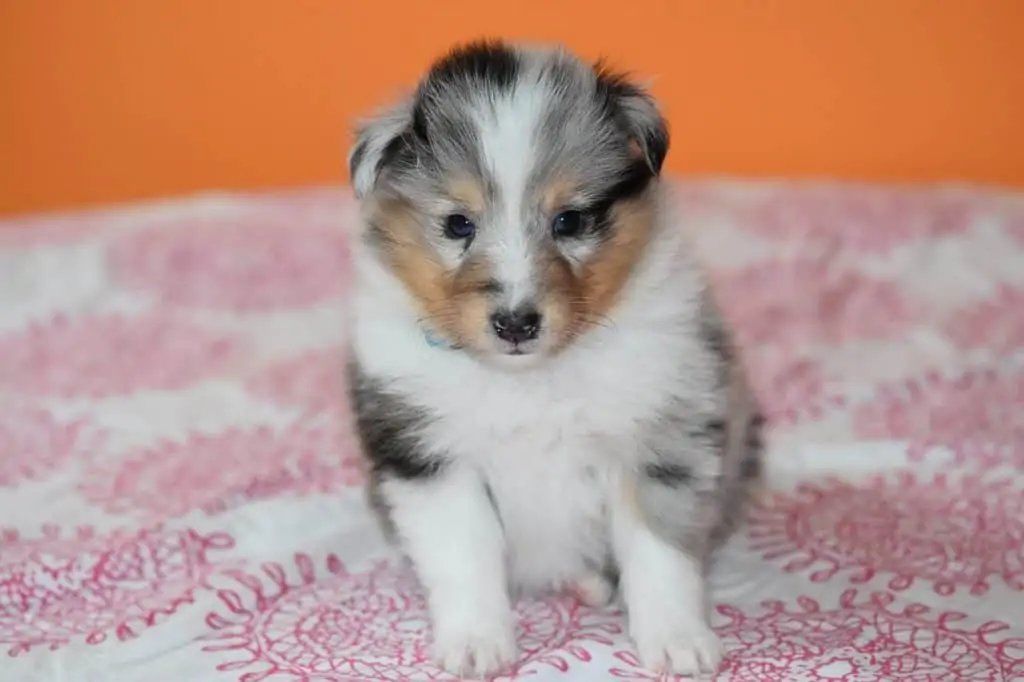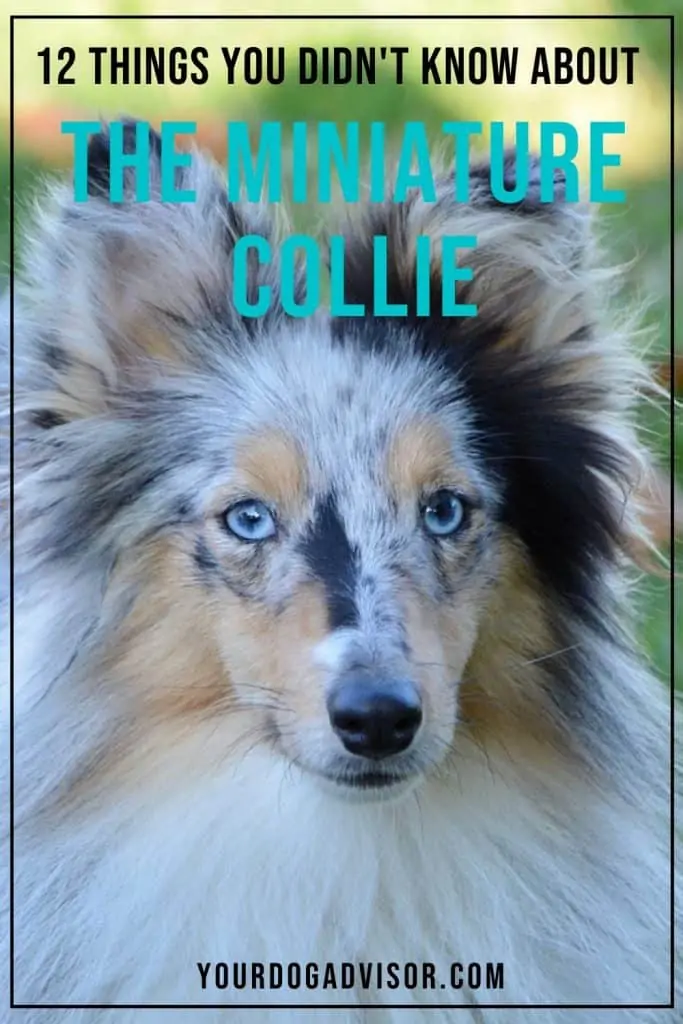The miniaturization of dogs has become increasingly popular, especially over the past 20 years or so.
Small dogs tend to be easier to care for, less expensive, and much more travel-friendly.
Of course, the Miniature Collie may look like the perfect dog for you on paper due to his compact size, but that doesn’t mean he’s the perfect dog for everyone.
So, before you commit to the MIniature Collie, here are 12 things we’re willing to bet you didn’t know.
Contents
But First, Let’s Meet The Miniature Collie!
The Miniature Collie is a beautiful little dog that comes in a number of coat colors.
Height: 13 to 16 Inches
Weight: 12 to 25 Pounds
Temperament: Intelligent, Energetic, Affectionate, Eager To Please
Best Suited For: Committed Dog owners, Owners Who Understand Working Breeds
Lifespan: 12 to 14 Years
Health Issues: Patellar Luxation, Allergies, Legg-Perthes, Hypothyroidism, Canine Hip Dysplasia, Trichiasis, Hemophilia, Cataracts, Collie Eye Anomaly, Progressive Retinal Atrophy, Dermatomyositis, Von Willebrand’s Disease, Epilepsy, Patent Ductus Arteriosus, and Deafness.
Overview:
What most people consider to be the Miniature Collie is a clever and affectionate small breed of herding dog hailing from the Shetland Islands of Scotland. Though small, the Miniature Collie is an active, intelligent and diligent herding dog with incredible fortitude, adaptability and ruggedness.
That said, this is also a dog that can suffer from anxiety issues if not raised by the right owner.
Mini Collies can also be prone to a number of health issues that are important to consider before you invest.
Are you ready to learn more about the Miniature Collie? Then let’s get started!
1. The Miniature Collie Isn’t Really A True Miniature Collie
Mini Collies are not actually Mini Collies, though they do look like them!
Spoiler alert – there is no such thing as a true Miniature Collie.
The truth is, the standard Border Collie is the only size Border Collie that truly exists, at least according to breed standard.
Generally, when people refer to a Miniature Collie, they’re talking about the Shetland Sheepdog.
This dog is the mirror image of his larger canine cousin, and though they do look incredibly similar and though they are even related, the Shetland Sheepdog and the Rough Coated Border Collie are considered two different breeds.
However, there are a few different methods breeders may use to go about producing what some would consider a true Miniature Collie, though some of these methods will not result in puppies that will be recognized by major breed clubs.
The first way is by breeding runts. What this means is that breeders will deliberately choose to breed two especially small Border Collies in the hopes of producing an especially small litter.
The problem with breeding runts is that these dogs often come with a list of underlying health issues that are typically contributing factors to their smaller-than-average size.
When you breed two dogs with underlying health issues, you are much more likely to pass those genetics on to their litter. Not only is this problematic for the would-be-puppies, but it can be devastating for unwitting owners in the long run.
Another way breeders may go about producing Miniature Collie dogs is by breeding dwarfism into their Collie litters. Like breeding runts, breeding dwarfism can lead to unhealthy puppies with a long list of health issues, bone and joint issues, breathing problems and more, which is why this process is greatly frowned upon.
The last method breeders may use to produce what some would consider to be Miniature Collies is to crossbreed a standard Collie with a smaller dog, often times a Miniature or Toy Poodle, or perhaps even a purebred Shetland Sheepdog.
This method is generally the safest method, as crossbreed dogs do have the potential to be healthier than their purebred counterparts.
This also reduces the chances of your dog developing serious issues due to the breeding of runts or dwarfism simply to establish a smaller sized dog.
And speaking of breeding a smaller sized dog, why were Miniature Collies (AKA Shetland Sheepdogs) bred down to begin with?
Let’s find out.
2. Miniature Collie Dogs Were Bred Small So They Wouldn’t Require As Much Food To Eat
The origin of the Miniature Collie is as fascinating as the breed is himself.
Although the Shetland Sheepdog is not technically a true Miniature Collie, this is the breed most people are referring to when they are referring to the Miniature Collie dog. This is likely due to the fact that Shelties, as they are often called, look so similar to standard rough Collies.
And this is understandable, considering Shelties are closely related to the Rough Coated Collie.
Hailing from the Shetland Islands in Scotland, Sheltie dogs were bred specifically for herding ponies and livestock. Their compact size helped them navigate the rough terrain, though the real reason these dogs were bred down was due to the fact that food was so hard to come by in their environment.
Farmers needed their dogs to be clever, agile, intelligent and work-oriented without being large and requiring too much upkeep or food. The Shetland Sheepdog brought all of these traits and more.
Unfortunately, historical records do not document when the Sheltie (AKA the Miniature Collie) finally found his way off the rocky Scottish islands, but we do know that he was officially recognized by the English Kennel Club in 1909.
Even then, this dog was not separated from his Collie counterpart. It wasn’t until 1914 when the Shetland Sheepdog was officially classified as his own breed.
However, due to his appearance and numerous similar characteristics, the Sheltie is often still referred to as the Miniature Collie.
3. The Miniature Collie Is Athletic and Requires Routine Exercise Both Physically and Mentally
Though small, Mini Collies need plenty of routine exercise and mental stimulation.
Bred for herding, it’s no surprise that the Miniature Collie is an athletic and active little dog. This is important to remember if you’re considering investing in a Miniature Collie, especially if you’re considering doing so hoping that his small size will mean that his exercise needs are less demanding.
On average, the clever and energetic Miniature Collie should have at least an hour or so of exercise each day.
These are dogs that will enjoy long walks, hikes, jogs, and free playtime in securely fenced in yards.
If properly socialized, you might consider letting your Miniature Collie play at a dog park with smaller dogs.
When you are exercising your Miniature Collie, be sure to walk him on proper walking equipment. Remember that he is smaller than the standard Rough Collie, and his throat and trachea can be sensitive to pressure.
Avoid walking your dog on a leash and collar alone and instead walk the Miniature Collie on a harness that refrains from putting pressure on his throat.
EzyDog Quick Fit Dog Harness
[amazon box=”B00TR6736C” style=”light” title=”Ezy Dog Harness” template=”widget” ]
The above dog harness is ideal for the uniquely shaped Miniature Collie and can even be custom sized if necessary. Most importantly, this harness is going to be comfortable for your dog. It fits over his head and rides low on his chest, which doesn’t allow for pressure to be put on your dog’s throat or neck.
This type of harness can also help reduce pulling, though most Miniature Collie dogs are very well behaved on their walks.
Along with physical exercise, it’s imperative that you also pay good attention to your dog’s mental stimulation needs as well.
This is a highly intelligent dog so he’ll need to be kept busy mentally in order to stay happy and mentally sound.
Without proper mental stimulation, the Miniature Collie can be prone to depression, anxiety and destructive behaviors.
But we will talk more about how the Miniature Collie dog’s unique needs when it comes to mental stimulation in a moment. For now, it’s time to discuss what you can expect when it comes to grooming.
4. Grooming A Miniature Collie Does Take Some Maintenance
Miniature Collies require consistent grooming to keep their lush coats healthy.
The Miniature Collie has a dense, double coat that sheds year-round and sheds heaviest twice a year during shedding season. While the Miniature Collie is a smaller dog, his coat requires big maintenance.
Miniature Collie dogs will need to be groomed routinely at least once a week. To properly groom a Miniature Collie, you will need to have the proper grooming tools and brushes. This would include a slicker comb, a deshedding comb, and undercoat rake and a dematting comb.
Furminator Deshedding Comb
[amazon box=”B00CD0H1ZC” style=”light” title=”Furminator Deshedding Comb” template=”widget” ]
The Furminator Deshedding Comb is one of our top picks when it comes to deshedding tools for dogs like the Miniature Collie.
This brush works by getting into your dog’s undercoat and pulling out all the loose hair and debris. It also comes with a self-cleaning button that you can push which releases the collected hair, making it much easier to continue on with brushing.
Although we do understand that your dog’s dense fur and thick undercoat can become overwhelming to groom, it’s very important not to skip steps or try and take shortcuts.
It’s also best not to try and shave your Miniature Collie, as shaving double coated dogs can put them at higher risk of skin issues, sunburn, heatstroke or, if it’s cold, hypothermia.
Brushing a Miniature Collie is a consistent job, and should be done at least three times a week. The good news is that Miniature Collie dogs are very people oriented and eager to please, and they’ll see grooming as quality time with their favorite person, which tends to make the job much easier.
Along with routine brushing, it’s also important to bathe your Miniature Collie a few times a year. He does not need to be bathed too often, or this can strip his coat of the natural oils he produces.
However, he should be bathed once every few months using a dog-safe shampoo.
Miniature Collie dogs can be prone to ear infections and eye issues, so pay special attention to their ears and eyes to keep them clean.
We also suggest you brush your Miniature Collie dog’s teeth once a day with a dog-safe toothbrush and toothpaste and keep his nails trimmed so they don’t crack or split during play.
5. The Miniature Collie Can Do Well With Children, But Play Should Always Be Supervised
It’s best to supervise young children with your Miniature Collie.
Depending on who you ask, the Miniature Collie can either do fabulously with children or he can be a bit standoffish and anxious around youngsters.
The truth is, many dogs have the potential to make good family dogs so long as they are properly raised, socialized and trained.
The Miniature Collie in particular is an eager to please breed who is very family oriented and adores his people. If raised with children, the Miniature Collie can make a wonderful and loving family companion.
He may be better suited to be around children than the standard Rough Collie, in fact, as his more compact size may be less overwhelming for children when it comes to his potential for herding instincts.
And speaking of herding instinct, you should remember that the Miniature Collie is a bred sheepdog. This means that he could have a strong herding instinct that will need to be worked with, especially around children and smaller animals.
Although the Miniature Collie does have the potential to do well with children, he can also be prone to stress if handled or played with too roughly.
As with all dogs, it’s important to supervise young children around your Miniature Collie at all times to ensure everyone is getting along safely and happily.
For age appropriate children, we also recommend you work with them on how to understand basic canine body language so they can recognize when their dog is happy, anxious or has had enough.
6. The Miniature Collie Can Make A Good Apartment Dog – But There Is A Catch
Miniature Collies can be vocal, which can be problematic for apartments.
Because of their compact size, you may assume that the Miniature Collie makes a wonderful apartment dog. While this can be true, there is somewhat of a catch.
Miniature Collie dogs are active and vocal, which can be problematic for those who live in smaller spaces or in apartments.
If their needs are not routinely met, they will not do very well in apartments. However, if you routinely exercise your Miniature Collie and take measures to ensure he is properly mentally stimulated, he can make an excellent apartment dog.
With all of that noted, Miniature Collie dogs do enjoy a backyard. If you don’t have a backyard or space to let your Miniature Collie run and play in freely, it is best to prepare for more commitment to daily exercise to ensure your dog is getting the activity he needs throughout the day to stay healthy and happy.
7. Miniature Collie Dogs Are Relatively Healthy Dogs
The Mini Collie is mostly healthy, but he can suffer from some health issues.
The Miniature Collie is considered a relatively healthy breed, and he has a decent lifespan of between 12 and 14 years.
While he is typically healthy, it’s still possible for a Miniature Collie to struggle with hereditary issues, especially if he is not obtained through responsible sources.
Some of the most common health issues you’ll need to look out for in a Miniature Collie dog include:
- Patellar Luxation
- Allergies
- Legg-Perthes
- Hypothyroidism
- Hip Dysplasia
- Trichiasis
- Hemophilia
- Cataracts
- Collie Eye Anomaly
- Progressive Retinal Atrophy
- Dermatomyositis
- Von Willebrand’s Disease
- Epilepsy
- Patent Ductus Arteriosus
- And Deafness.
There are a few ways you can go about combating potential health issues in your Miniature Collie, and this is where responsible breeding practices come in.
If you’re looking to purchase a Miniature Collie through a breeder, it’s important to avoid backyard breeders, online sellers, or those who are not certified or clearly do not understand the importance of responsible breeding practices.
You should also note that merle Miniature Collie dogs are more susceptible to inheriting deafness.
You can also consider having your Miniature Collie health screened early on if you’re concerned about any of the above health issues, and we do recommend you invest in pet health insurance.
Other ways to help combat potential health issues in your Miniature Collie include keeping your dog on a quality diet specified for his age, weight and activity level, ensuring you keep up with routine vet visits, and sticking to a proper grooming, exercise and training routine.
8. The Miniature Collie Is Considered The 6th Most Intelligent Dog Breed In The World
The Miniature Collie, in his purebred Shetland Sheepdog form, is considered one of the most intelligent purebred dogs in the world.
If you’re looking for a smart dog, look no further than the Miniature Collie. In fact, the Miniature Collie is considered the sixth most intelligent dog in the entire world.
Most dogs bred for working purposes are clever, and herding dogs are especially known to be natural problem solvers. But the Shetland Sheepdog (AKA the Miniature Collie) takes the cake when it comes to obedience.
He’s also a natural athlete, and excels in a number of competitions and shows. Of course, this is specifically the Shetland Sheepdog we are talking about.
Remember, there are a few different variations of a “Miniature Collie”, and crossbreed Miniature Collie dogs will not be accepted in show by most major breed clubs.
If you do want to get your hands on a show quality Miniature Collie dog, prepare to spend a good amount of money.
Miniature Collies bred for working or show purposes can cost up to $6,000!
9. Training A Miniature Collie Is A Breeze!
Because they are so smart, training a Miniature Collie is simple!
The Miniature Collie isn’t just the 6th most intelligent dog in the world, he’s also number one when it comes to ranking in obedience.
This means that when it comes to training, the Miniature Collie is perhaps the easiest dog to train in the world. He is not only incredibly smart, he is people-oriented and eager to please.
Many highly intelligent dogs can be difficult to train as they are more stubborn or hard-headed. The Miniature Collie could not be more opposite. This is a dog that enjoys having a job to do and will enjoy having training sessions with you.
For this reason, it’s very important that you keep training sessions fun, consistent and gamelike. Use treats and praise when training your Miniature Collie and avoid harsh punishments or scolding.
This could actually deteriorate the bond between you and your Miniature Collie and even hinder his ability to learn from you.
10. The Miniature Collie Makes A Great Watch Dogs and Can Be Vocal
Intelligent and small, these dogs know how to use their voices.
Miniature Collies are not afraid to use their voice.
They make excellent watch dogs for this very reason, though their bark can be problematic for those who live in smaller spaces or in homes with shared walls.
If you’re worried about your Miniature Collie barking, we would suggest working early with your dog and training him when to start and stop barking on command. This will help him establish early on what you expect of him.
Remember, the Miniature Collie is highly trainable and eager to please, so working to reduce barking using positive reinforcement techniques and constancy as we mentioned above can work wonders.
11. Miniature Collie Dogs Can Be Prone To Anxiety
Like many intelligent dogs, Mini Collies can be more prone to anxiety.
All dogs require routine socialization beginning during puppyhood, and the Miniature Collie is no exception.
In fact, without proper socialization beginning at an early age, the Miniature Collie can be seriously prone to struggling with anxiety.
This anxiety can lead to a number of behavioral issues including destructive behaviors like barking, marking and chewing, as well as fear-based aggression, depression, or stress.
To reduce the chances of your Miniature Collie struggling with anxiety and stress, it’s very important to introduce them to as many new experiences as possible at an early age.
With that being said, while it is important that your Miniature Collie has a wide variety of experiences early on, it’s also important not to force your dog into an experience he seems truly frightened of.
Doing so could compound fears in the long run, so encourage your dog gently to explore new things without pushing him.
12. Miniature Collie Dogs Do Best In Homes With Attentive and Committed Owners
Mini Collies do best with owners who are committed and attentive.
Although the Miniature Collie can make an excellent companion for the right owner, he is also a bit more high maintenance than the average family dog.
His incredible intelligence and affectionate nature make him a diligent owner’s dream, though this is a dog that does best in homes with active, committed owners who have an understanding of working dog breeds and how they think.
Remember, the Miniature Collie is considered one of the world’s smartest dog breeds, and this kind of intelligence requires commitment.
It should also be noted that Miniature Collies can struggle with anxiety and behavioral issues, especially if he is left alone too often without plenty to keep him busy.
Are You Considering A Miniature Collie? Here’s How To Find A Healthy Miniature Collie Puppy or Rescue
If you plan on buying a Mini Collie through a breeder, be sure to go through reputable sources.
The Miniature Collie is a lovely dog, so if you’ve decided this incredible canine is the right breed for you, we can’t blame you.
That’s why we want to help ensure you find the healthiest Miniature Collie puppy or rescue possible.
What To Expect If Going Through A Breeder To Buy A Miniature Collie
If you’re looking for the Shetland Sheepdog version of the Miniature Collie through a breeder, prepare to spend a bit of money. This is especially true if you opt to buy a Miniature Collie bred for working or show purposes.
On average, a Miniature Collie bred through a responsible breeder can cost between $1,000 and $3,000.
Be careful of going through breeders who are trying to sell Miniature Collie puppies for much less or much more than the average price without the proper proof of paperwork and pedigree.
If you opt to get a crossbred Miniature Collie, remember that these types of dogs will not be eligible for show. Still, hybrid dogs like Collie and Poodle mixes, for example, can still cost a pretty penny.
The Miniature Colliedoodle can cost some owners between $700 and $1,500.
What To Expect When Going Through A Rescue Or Shelter To Adopt A Miniature Collie
If you prefer to find a Miniature Collie through a shelter or rescue, we would suggest looking into breed-specific facilities that focus on Collies, Collie hybrids and Miniature Collie dogs. It may be more time consuming and require more patience when looking for a Miniature Collie through a shelter or rescue, but there are plenty of benefits, including price.
Rescuing a dog generally costs owners on average between $250 and $500. Plus, you’re adopting a dog, so that’s always a win.
Whichever route you choose to take when it comes to getting a Miniature Collie, the important thing is that you take your time and trust your source.
Alright, now we want to hear from you! What was the most surprising thing you learned about the Miniature Collie from our above list?
Tell us what you think about the Miniature Collie in the comment section below.
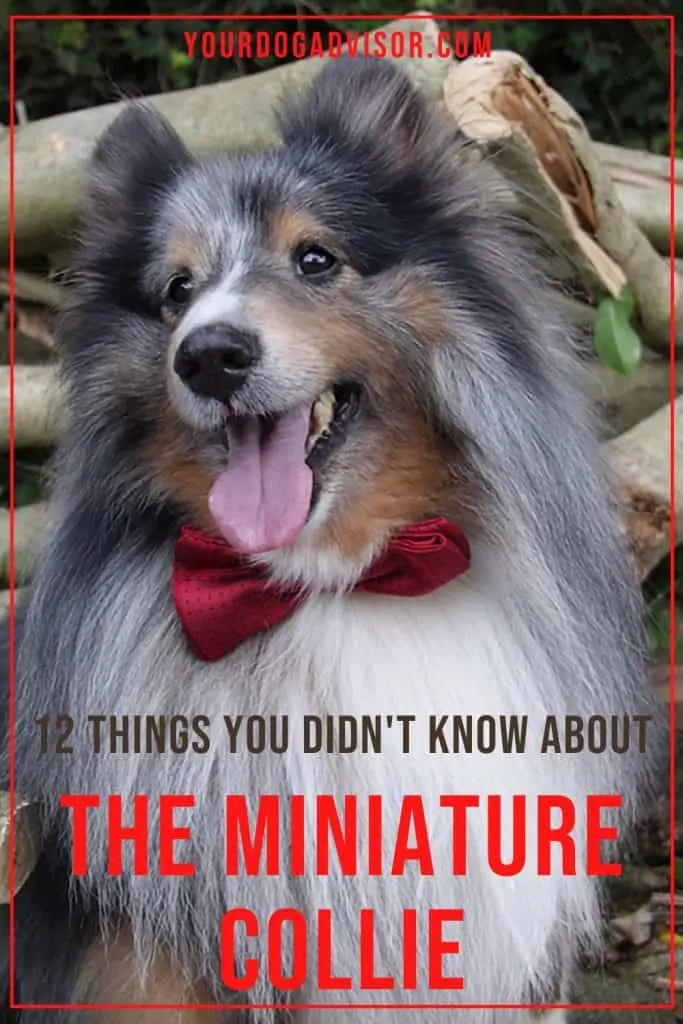

Jen Jones is a professional dog trainer and behavior specialist with more than 25 years of experience. As the founder of ‘Your Dog Advisor’ and the ‘Canine Connection’ rehabilitation center, she applies a holistic, empathetic approach, aiming to address root causes rather than merely treating symptoms.
Well known for her intuitive and compassionate approach, Jen adopts scientifically-proven, reward-based methods, encouraging positive reinforcement over punishment. Jen specializes in obedience training, behavior modification, and puppy socialization. Her innovative methods, particularly in addressing anxiety and aggression issues, have been widely recognized. Jen has worked with many of the world’s leading dog behaviorists and in her free time volunteers with local animal shelters and rescue groups.
